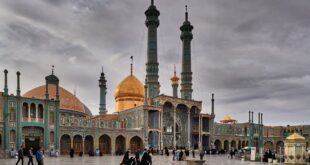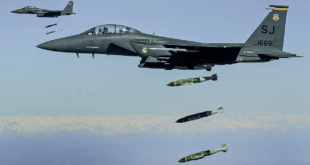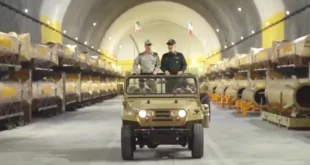 Pakistan has agreed to details of a deal for buying gas from Iran, officials from both sides said on Friday, adding that the proposed tri-nation pipeline would be viable even if India, the third party, walked out. India stayed away from this week’s talks in Tehran on the proposed $7 billion pipeline, saying it wanted to agree transit costs through Pakistan on a bilateral basis first, an Iranian official said. But he said India had not said it was quitting.
Pakistan has agreed to details of a deal for buying gas from Iran, officials from both sides said on Friday, adding that the proposed tri-nation pipeline would be viable even if India, the third party, walked out. India stayed away from this week’s talks in Tehran on the proposed $7 billion pipeline, saying it wanted to agree transit costs through Pakistan on a bilateral basis first, an Iranian official said. But he said India had not said it was quitting.
“The economics of the project will improve with Indian participation but … the project is economically viable as a bilateral project also,” Mukhtar Ahmed, the energy adviser to Pakistan’s prime minister, told reporters in Tehran.
Hojjatollah Ghanimifard, international affairs director of the National Iranian Oil Company (NIOC), said the three sides had previously planned for gas sales and purchase agreements (GSPAs) to be negotiated separately by India and Pakistan.
“So far, the information formally we have from the authorities of India is that they are willing to join us.
They have just their internal problems, including that they need to finalize the transit fee with our good Pakistani friends,” Ghanimifard said after talks late on Friday.
Iran’s oil minister said on Wednesday his country would still sign a deal with Pakistan if India decided not to join.
Mukhtar said Pakistan and India had agreed in principle how to tackle issues like transportation tariffs and transit fees.
“We don’t see transit through Pakistan as a problem. We’ve had bilateral discussions with India on this subject,” he said, although he said more talks were to be needed.
Speaking of Pakistan’s talks with Iran, Mukhtar said, “We have agreed upon everything that we needed to agree on with regard to the gas sales and purchase agreement and the inter-governmental framework agreement.”
He said the details would be drawn up in final documents to be examined at bilateral talks in Islamabad on Oct. 15-19.
Mukhtar did not give details for the price of the gas agreed but said it would be linked to the price of oil. He said that they had also agreed on a price review clause – an issue that had been pending – but he did not elaborate.
In July, Ghanimifard said India and Pakistan had accepted Iran’s demand for gas price reviews based on market changes. He denied reports by some Indian newspapers that the pipeline talks had failed after Iran demanded a review every three years.
The pipeline would initially carry 60 million cubic meters of gas daily to Pakistan and India, half for each country. The pipeline’s capacity would later rise to 150 million cubic meters. Pakistan says it could want 60 million cubic meters for itself in the future.
Iran says it has completed 18 percent of the work for the pipeline to bring gas from its South Pars field up to Iran-Pakistan border. Pakistan has yet to begin work on a 1,000 km (625 mile) stretch of the pipeline to link Iran with India.
Iran has the world’s second-largest gas reserves after Russia.
 Eurasia Press & News
Eurasia Press & News



